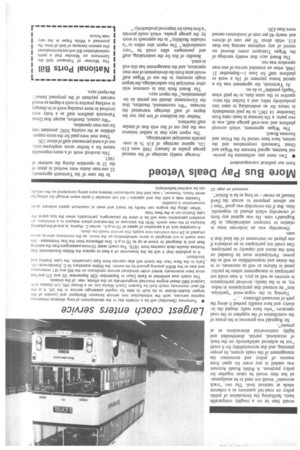More Bus Pay Deals Vetoed
Page 23

If you've noticed an error in this article please click here to report it so we can fix it.
from our political correspondent • Two more pay settlements for provincial busmen, agreed between the Wigan and Great Yarmouth corporations and the unions, have been vetoed by the Prices and Incomes Board.
The Wigan agreement, which covered platform and non-craft garage staff, was in two parts: a lOs increase in basic rates from December 14 1967, to be paid immediately in return for an undertaking to enter into productivity talks; and a further lOs retrospective to the same date, to be paid when "legally possible" to do so.
At Yarmouth, the agreement was for a special bonus payment of 108 a week to platform staff for June I—September 21 1968, when an extended service of one-man operation was run.
The Board says that weekly earnings of the Wigan Transport crews showed no record of any employee earning less than £15, while about 70 per cent of drivers and nearly 40 per cent of conductors earned more than £20.
Average weekly earnings of the manual garage grades at January 1968 were £16, 12s, against earnings of £16 7s in comparable municipal undertakings.
The report says that in neither instance was the pay out of line with that of similar staff elsewhere.
Neither the incidence of low pay nor the degree of staff shortage warranted the increase. "We recommend, therefore, that the Government should not permit its implementation," the report says.
The Board finds that in common with other municipal bus undertakings, the largest single economy in the use of Wigan staff would arise from the development of one-man operation, and the management has this well in mind.
Benefits of this for the undertaking, staff and passengers alike could be "very considerable." The report also refers to "a valuable flexibility" in the approach to work by the garage grades, which could provide "a firm basis for improved productivity." In the case of the Yarmouth agreement. 32 one-man duties were worked in place of the 25 in operation during the summer of 1967.
This involved work of a more responsible nature for a further seven employees only, out of a total permanent staff of about 120.
These men were paid for the extra respon sibilities at the existing NJIC premium rate for one-man operation.
"We cannot, therefore, accept that Great Yarmouth platform staff as a body were involved in more exacting work or in changes in working practice to such a degree as would warrant payment of the proposed bonus-, the report says.












































































































